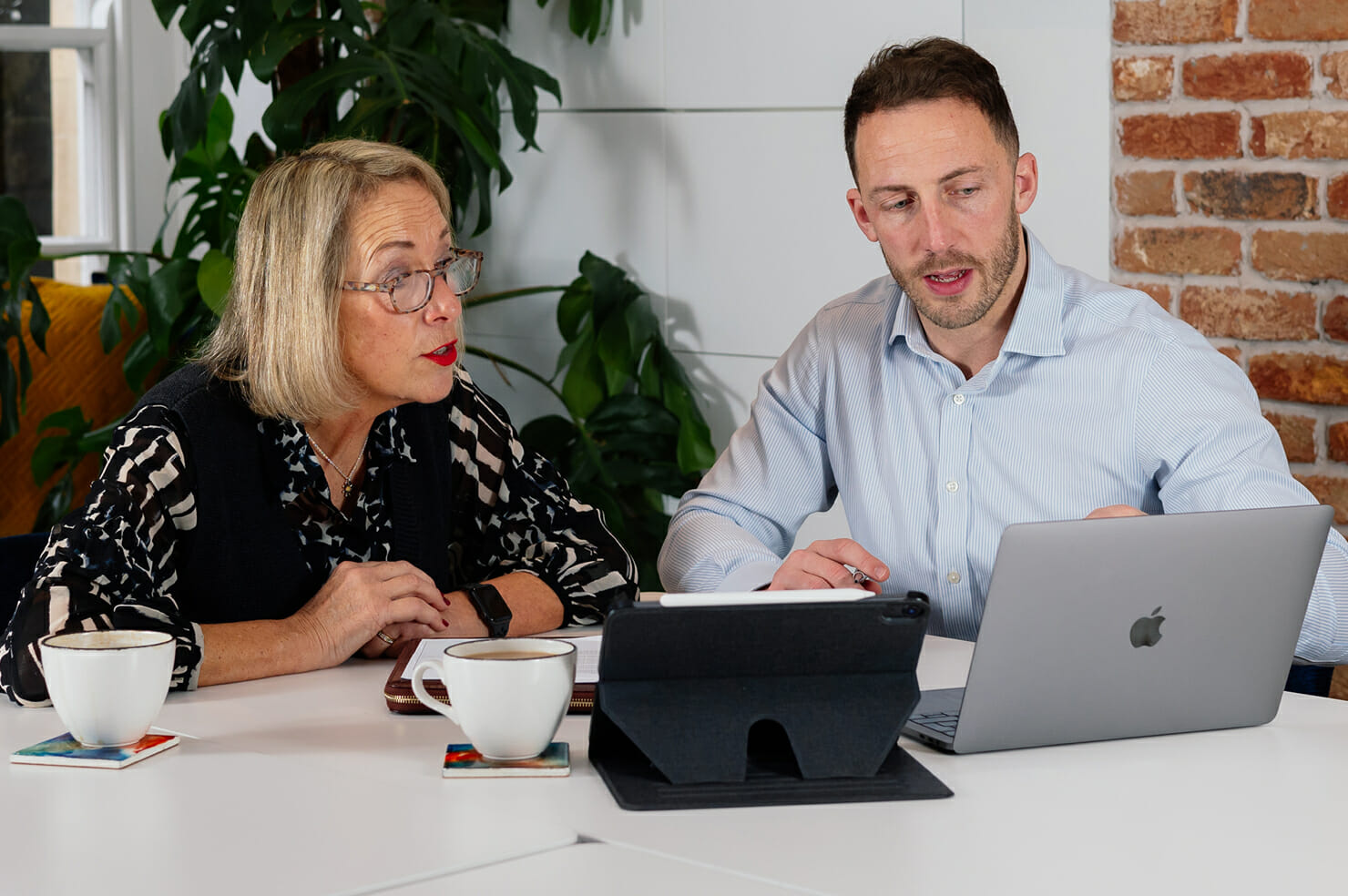Modified on: June 2024
Financial Tips for Business Owners and Company Directors
Financial Tips for Business Owners and Company Directors
This short article provides business owners and company directors with financial tips and tricks to make their money work harder.
If you’re about to set up your business or are the director of a growing business, this one’s for you!
So, before we get into it, I want to set the scene. The key difference between business owners and employees are that as a business owner you are responsible for your own financial planning. Whereas employees have everything set up for them, as a business owner you’re on your own.
Free Pension Money
By far the biggest difference I see between being a business owner and being an employee is pension contributions. Typically, large employers will pay between 5% – 10% into an employee’s pension, often without requiring anything from the employee. Let’s say you earn £100,000, that’s £10,000 per year. It’s basically free money, and as a business owner you’re missing out on it.
I appreciate that when you’re in the thick of it, pensions aren’t the most important thing on your mind. But when you think about what a pension really is, and how much you’re missing out on, it’s a big deal. A pension really is just a pot of money that provides you with an income after you’re done working for a living.
Stopping working might seem like a distant prospect now, particularly if like us, you’re fairly young, and the business is doing well. But don’t mistake the future forever, one day the future will become the present, and when it does, you’ll wish that you planted the tree long ago.
The good news is that there is a fantastic benefit available to business owners when it comes to pensions. As a Director of a limited company, you can make pension contributions from the company. This will be treated as an allowable expense, reducing the amount of corporation tax you pay. For more information, download the free pensions for company directors guide.
Making pension contributions from the business is an absolute no brainer and by far the most tax-efficient way to plan for your future. You can even use your pension to buy your business premises!
As an example, if you were to take £100 out of the business as a higher rate taxpayer, you would receive just £54 after corporation tax and dividend tax. By comparison, you could put that £100 in the business and receive the whole lot. That’s an uplift of 85%!
That’s free money – and if you’re not taking advantage of it, you’re missing out. This is the only way if you’re a limited company director that you’re going to keep up with your friends who work for large companies.
Tax-Free Insurance
The second big difference I see between is insurance, or rather the lack of it. Typically, an employer will provide employees with life insurance, which pays out a lump sum to their family in the event of their death. This is usually a multiple of their salary, with 4x – 7x being normal.
Let’s say you earn £100,000 per year. As an employee, you would leave your family with £700,000. That’s a decent sum and probably enough to make sure they can remain comfortable when you’re no longer around.
But as a limited company director, there’s no automatic safety net. Unless you’ve put something in place, you’re running the risk of leaving your family with nothing. As a business owner, you have a responsibility to make sure that if disaster strikes, you’re leaving those you leave behind with security and stability.
The good news is that there is a great benefit available to business owners when it comes to life insurance. As a Director of a limited company, you can take life insurance out through the company. Like pension contributions, this will be an allowance expense, which will reduce your corporation tax liability.
I appreciate that nobody likes thinking about popping their clogs early – myself included. But if you’re paying for life insurance outside of the business, or haven’t got any life insurance at all, the smart thing to do is to arrange it through the business. You’ll save money and sleep sound at night.
Make sure to check out our free pension guide for company directors.
Pay Less Tax
The final difference I’ll discuss between being a business owner and being an employee is income tax. This is where being a business owner really comes into its own.
As an employee, you have limited room to reduce the amount of tax you pay. You receive your salary after tax, with no room for manoeuvre. Whereas for business owners, a little bit of planning can go a long way to reducing your tax bill.
Let’s say you earn £100,000 per year. As an employee, you’ll pay taxes and national insurance of around £34,000, leaving you with just £66,000. However, as a business owner, earning the same amount will provide you with an income of £80,000 if structured correctly. That’s an increase of £14,000 per year in your pocket.
Simple financial planning opportunities like withdrawing the right mix of dividends to salary can make big differences. Yet we routinely come across business owners, even those with accountants, who are paying far more tax than they should. This isn’t about paying less tax than we’re supposed to, it’s about paying the right amount of tax and nothing more.
The Bottom Line
If you’re a business owner and you’re not taking advantage of this free money, you need to be asking yourself why not. Whether it’s getting the company to fund your pension, reducing the cost of life insurance, or reducing your tax bill. You aren’t provided with the same benefits that employees have, so you need to be taking advantage of these various forms of free money.
All the best,

James Mackay, Independent Financial Adviser in Bristol
.
.
Financial Advisor Bristol and Pension Advisor Clifton
Frazer James Financial Advisers is an Independent Financial Advisor Bristol, Clifton.
About us: Frazer James Financial Advisers is a financial advisor, based in Clifton, Bristol. As an independent financial adviser, we’re able to provide independent and unbiased financial advice. We provide independent financial advice, pension advice, investment advice, inheritance tax planning and insurance advice.
If you would like to speak to a Financial Advisor, we offer an Initial Financial Consultation without cost or commitment. Meetings are held either at our offices, by video or by telephone. Our telephone number is 0117 990 2602.
Frazer James Financial Advisers is located at Square Works, 17 – 18 Berkeley Square, Bristol, BS8 1HB.
This article provides information about investing, but not personal advice. If you’re not sure which investments are right for you, please request advice.
Remember that investments can go up and down in value, you may get back less than you put in.
About The Author
Related news


Get in touch
Schedule a free consultation with one of our financial advisers, or give us call.
0117 990 2602
 Client login
Client login  Retirement assessment
Retirement assessment  Book a consultation
Book a consultation  0117 990 2602
0117 990 2602 











